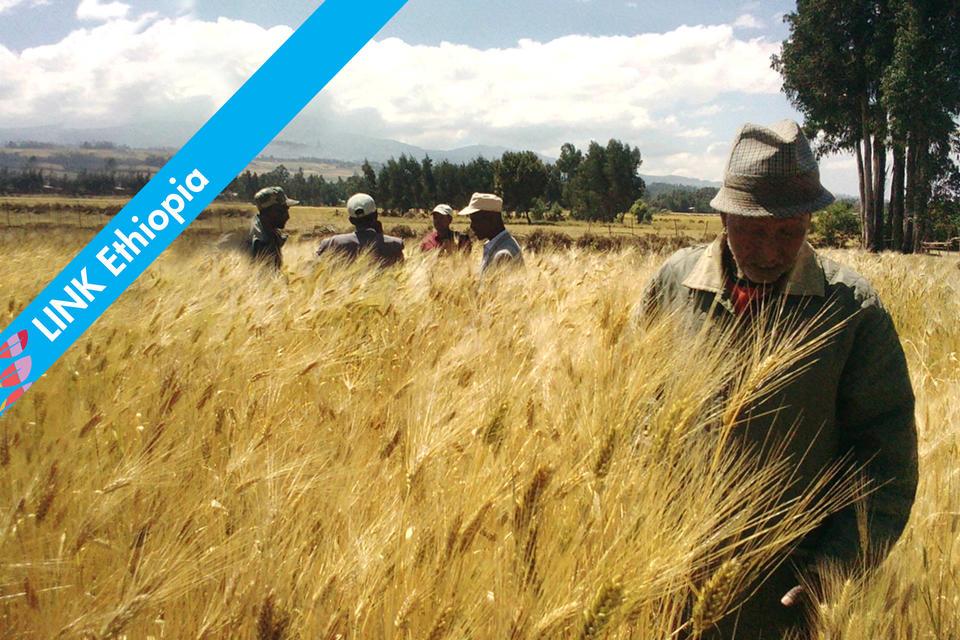Linking farmers and markets in Ethiopia: inclusive business models
- From
-
Published on
29.03.23
- Impact Area

Following the success story on one of the most important crops in Ethiopia, let’s take a look at the second phase of the study on the durum wheat value chain conducted by our team and funded by the German Agency for International Cooperation (GIZ), in search of inclusion and productivity improvement.
During the second phase, the project sought to take necessary steps to build a sustainable and inclusive business model for durum wheat value chain in the study area that can be scaled in other parts of Ethiopia. To achieve this objective, the second tool of the LINK Methodology was applied, since the Business model canvas and its linkages with Tool 1. Value chain mapping helps to understand where to focus intervention efforts in terms of choosing a business model in which to intervene.
Related news
-

ICRISAT to Deliver World-Class Services as CGIAR’s Breeding Resources South Asia Hub
International Crops Research Institute for the Semi-Arid Tropics (ICRISAT)07.07.25-
Biodiversity
-
Food security
Strategic collaboration to scale innovation and deliver harmonized, high-quality support across CGIA…
Read more -
-

ICRISAT to deliver world-class services as CGIAR's Breeding Resources South Asia Hub
Breeding for Tomorrow07.07.25-
Nutrition, health & food security
Strategic collaboration to scale innovation and deliver harmonized, high-quality support across CGIA…
Read more -
-

Scaling nutrition impact: Schools serve up High-Iron Beans
The Alliance of Bioversity International and the International Center for Tropical Agriculture (CIAT)03.07.25-
Nutrition, health & food security
Iron-rich beans can be integrated into consumers’ diets to enhance nutrition and cognitive functio…
Read more -
